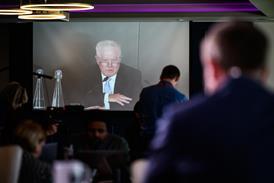The Supreme Court will look again this week at a case that split the Court of Appeal and was widely felt to have serious implications for clinical negligence law.
Justices will hear the appeal in Darnley v Croydon Health Services NHS Trust after a challenge from the paralysed claimant was dismissed by majority in the Court of Appeal last year.
The claimant alleged negligence by the receptionist in the accident and emergency department, and the case hinged on whether she (or the NHS trust) owed any tortious duty to provide accurate information about waiting times.
Darnley came to A&E with a head injury after an assault and was informed he could expect to wait up to five hours before treatment and decided after 19 minutes to go home. He was not informed about a triage system to examine patients within 30 minutes, and had gone by the time the nurse came to look for him.
At home, his condition deteriorated, and by the time he returned to hospital it was too late to prevent permanent injury. He sustained partial hemiplegia and long-term disabilities.
In his judgment, Lord Justice Jackson stressed the importance of wider issues in the appeal, pointing out that around 450,000 visits are made to A&E departments across England every week.
He ruled the judge at first instance had been entitled to find the nurses’ failure to triage Darnley within 19 minutes was not a breach of duty. Neither the receptionist nor the NHS trust owed any duty to advise the claimant about waiting times, he added.
Jackson saw force in the ‘floodgates’ argument, adding: ‘Litigation about who said what to whom in A&E waiting rooms could become a fertile area for claimants and their representatives.’
While Jackson was supported by Lord Justice Sales, Lord Justice McCombe dissented, saying the NHS trust was in breach of its duty to the claimant and that that breach caused the claimant’s injury.
The controversial decision was welcomed by NHS Resolution, which said the ‘novel’ claim had to be resisted in the interests of the health service, and that ‘opening up receptionists to negligence claims of this kind would have had very serious consequences’.
The Supreme Court has allocated one day for hearing the appeal, with arguments set to be heard tomorrow.



























35 Readers' comments